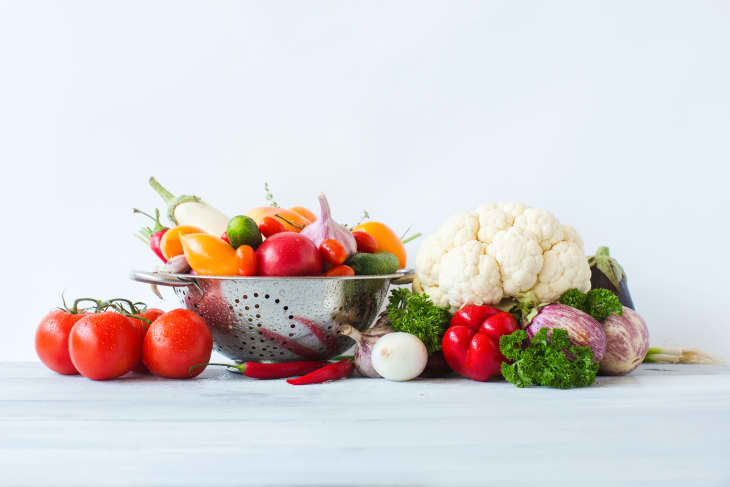Why I’ll Never Use the Words “Clean Eating”
In my house, we eat mostly fresh foods and keep packaged foods to a minimum. We grow a lot of our own produce in our backyard garden and are members of a CSA. We even buy most of our meat from local farmers who are transparent about using non-GMO feed.
But I’ll never say that we eat “clean” because it undermines my long-term strategy for both my own health and that of my two girls. Here’s why.
1. My diet doesn’t need a label.
The last thing I want to do at the dinner table is to get hung up on labels or feel guilty about the lack of perfection in my diet. In our house, we don’t call food “good” or “bad,” but instead we simply eat more healthy food than food that isn’t as rich in nutrients. And because we also need to be able to eat food out in the world without demonizing it, avoiding labels is a simple step that goes a long way towards meeting that goal. It allows us to enjoy occasional treats without guilt or worry that we broke a rule or failed to live up to an arbitrary standard.
2. Kids take things literally.
I’m always explaining figures of speech to my 4-year-old daughter, or saying that something is just an expression. If I tell her that I’m not eating something because it’s not clean, she might think that this food is dirty. And, knowing her, she might refuse to eat something that she loves, which just seems like an unnecessary complication to the already complex ordeal of feeding little ones.
3. It sends confusing, not-cool messages.
Hashtags like #kidseatingwhole and #kidseatingclean make me crazy because they imply that the rest of us are choosing to feed our kids bad, filthy food. And it sends a not-so-subtle message that certain kids are more virtuous and pure than others simply based on what’s in their lunchbox — which is neither true, nor fair.
4. It can backfire as a long-term health strategy.
Often, the more you restrict certain foods or food groups, the more likely it is that you’ll overeat them when your defenses are down. That yo-yo style of eating is exhausting, both mentally and physically. So rather than rigidly declare entire food groups off-limits, I trust myself (and my kids) to eat a varied diet, with some foods on the table more frequently than others. Keeping lots of fresh, healthy foods around is key — you’d be amazed at what kids will eat when there’s an interesting assortment of produce, cheese, and nuts to snack on. (Hint: produce, cheese, and nuts!)
5. Eating exclusively, stereotypically “clean” is expensive and unrealistic for most families.
Yes, my ideal shopping cart would be full of whole foods, produce, grains, and dried beans. But that doesn’t mean that I don’t also rely on certain items to slash my total bill or on shortcuts to get dinner on the table on busy nights. No one should ever be made to feel badly about using store-bought staples like sauces, pasta, or heat-and-eat meals. Or for feeding their families mostly whole foods with some processed ones in the mix, or mostly shortcut foods with whole foods in the mix!
It’s also easy to forget that not everyone actually likes to cook, so when you add that into the equation, we’re setting an incredibly high bar — that isn’t necessarily doing a lot of good for our overall health.
